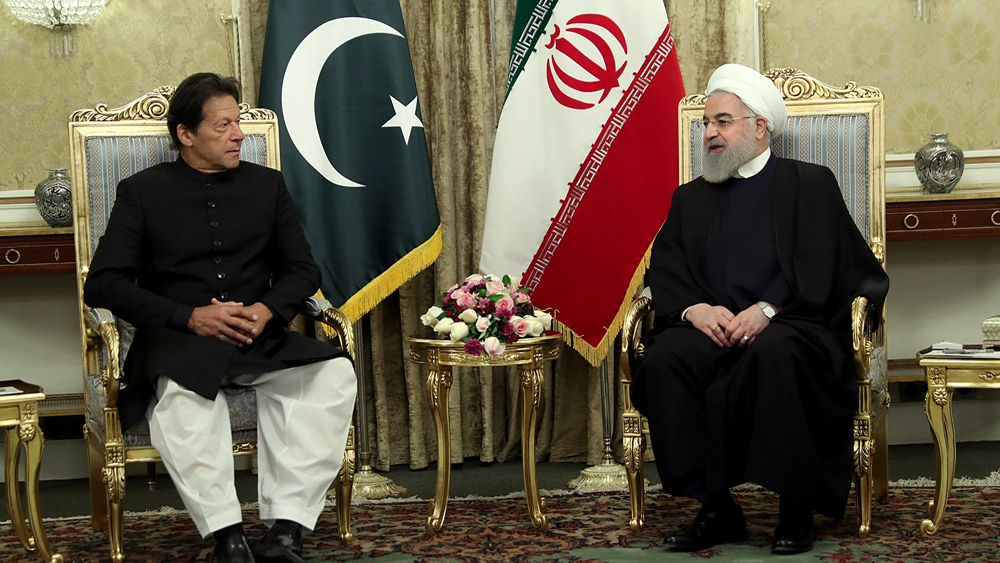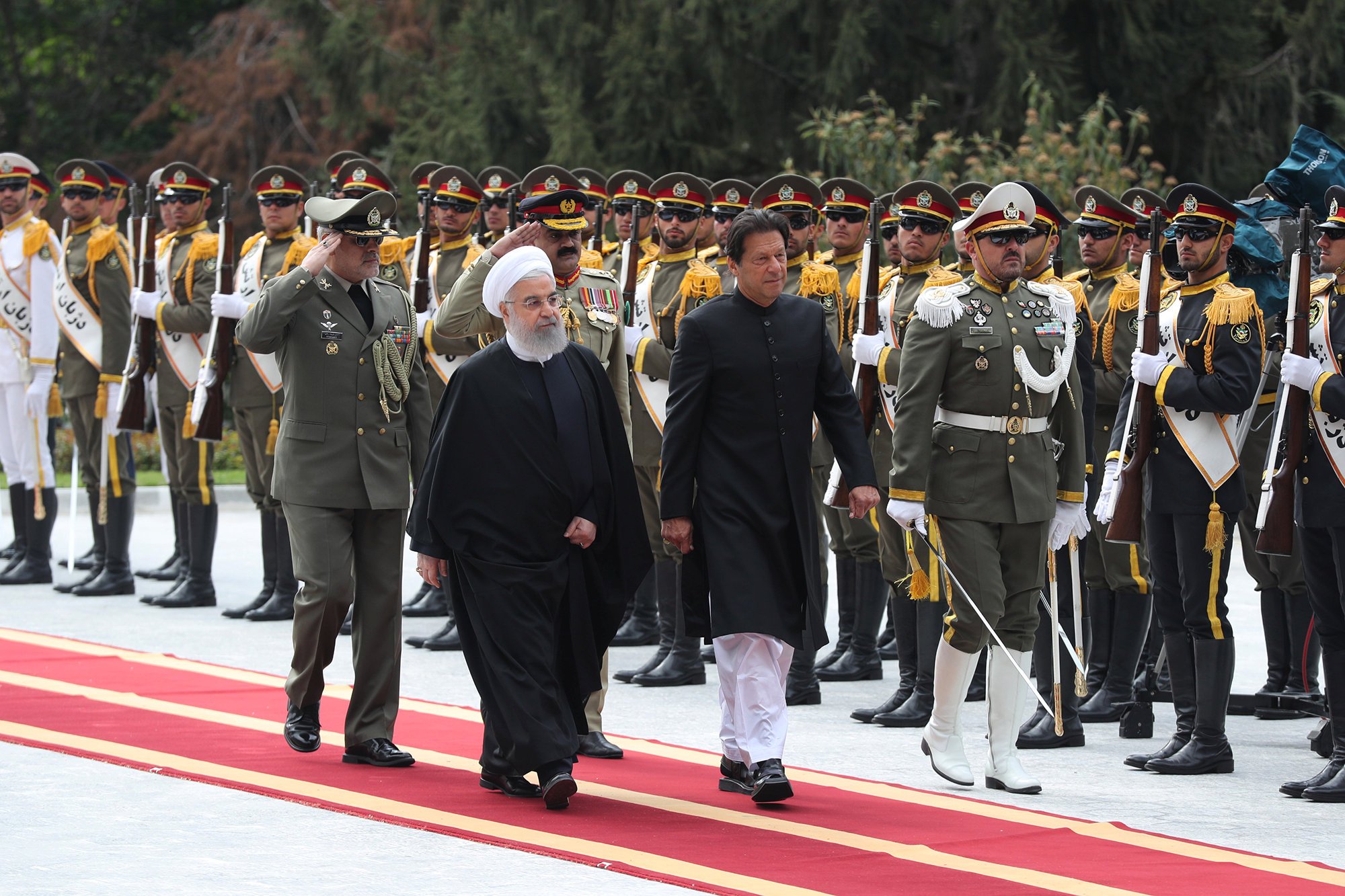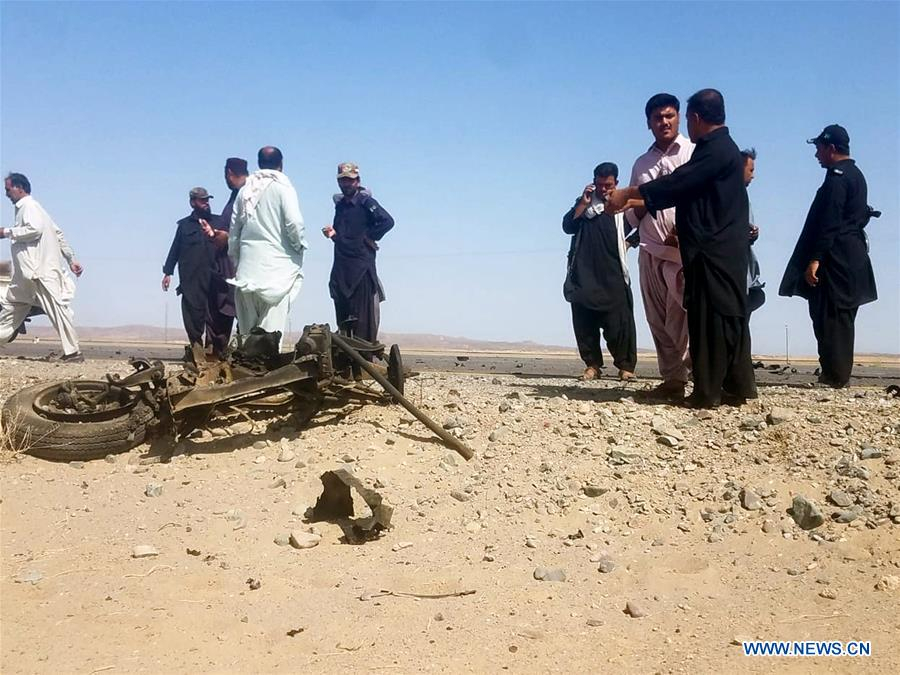
Middle East
20:10, 22-Apr-2019
Iran, Pakistan to set up border 'reaction force' after attacks
CGTN

Iran's President Hassan Rouhani announced Monday that he and visiting Pakistani Prime Minister Imran Khan agreed to set up a joint border "reaction force" to counter terrorism.
"We agreed to create a joint rapid reaction force at the borders for combating terrorism," Rouhani told a joint news conference, following months of increased tensions over attacks on both sides of the two countries' frontier.
The border skirts the volatile southeastern Iranian province of Sistan-Baluchistan which has been the scene of frequent attacks on Iran's security forces.
Khan's visit to Iran, the first since he took office last year, comes after gunmen who Islamabad says were based in Iran killed 14 members of Pakistan's security forces last week in its own Balochistan province.

Iranian President Hassan Rouhani walks with Pakistani Prime Minister Imran Khan during a welcome ceremony in Tehran, Iran, April 22, 2019. /Reuters Photo
Iranian President Hassan Rouhani walks with Pakistani Prime Minister Imran Khan during a welcome ceremony in Tehran, Iran, April 22, 2019. /Reuters Photo
"The security chief will sit down with his counterpart here and discuss (security) cooperation," Khan said, although no details were given on the joint force.
"We trust that both countries will not have terrorist activities from their soil ... We will not allow any damage to your country from our soil," said the Pakistani premier who started a two-day visit on Sunday.
In March, Rouhani demanded Pakistan act "decisively against anti-Iranian terrorists," following a February 13 attack that killed 27 members of the elite Revolutionary Guards in Sistan-Baluchistan.
Iran has said a Pakistani suicide bomber was behind the attack, which was claimed by the Sunni jihadist group Jaish al-Adl (Army of Justice), which Tehran says operates mostly out of bases in Pakistan.
On Saturday Islamabad said it had evidence the "terrorist outfits" that carried out the attack in Balochistan have "training and logistic camps inside Iranian areas bordering Pakistan".
Islamist as well as ethnic Baloch separatists operate in Balochistan, Pakistan's poorest province.

Security personnel inspect the site of a suicide blast in Pakistan's southwestern Balochistan province, Aug. 11, 2018. /Xinhua Photo
Security personnel inspect the site of a suicide blast in Pakistan's southwestern Balochistan province, Aug. 11, 2018. /Xinhua Photo
'No third country'
Stressing that "no third country" could harm Iran-Pakistan ties, an apparent reference to the United States and its policy of isolating the Islamic republic, Rouhani said Tehran was ready to boost trade and business ties with Islamabad. "Iran is ready to meet Pakistan's oil and gas demands ... (and) we are ready to increase (electricity) exports to Pakistan ten-fold," Rouhani said.
He said cooperation between Chabahar port in southeast Iran and Pakistan's Gwadar port can be increased, and that Tehran could facilitate the construction of a railroad connecting Istanbul to Islamabad.
For his part, Khan said his visit to Tehran – the first by a Pakistani premier since Nawaz Sharif in 2016 – aimed to "find ways to increase trade and cooperation... in energy and other areas", noting that two-way trade was "very limited".
5602km
Source(s): AFP

SITEMAP
Copyright © 2018 CGTN. Beijing ICP prepared NO.16065310-3
Copyright © 2018 CGTN. Beijing ICP prepared NO.16065310-3